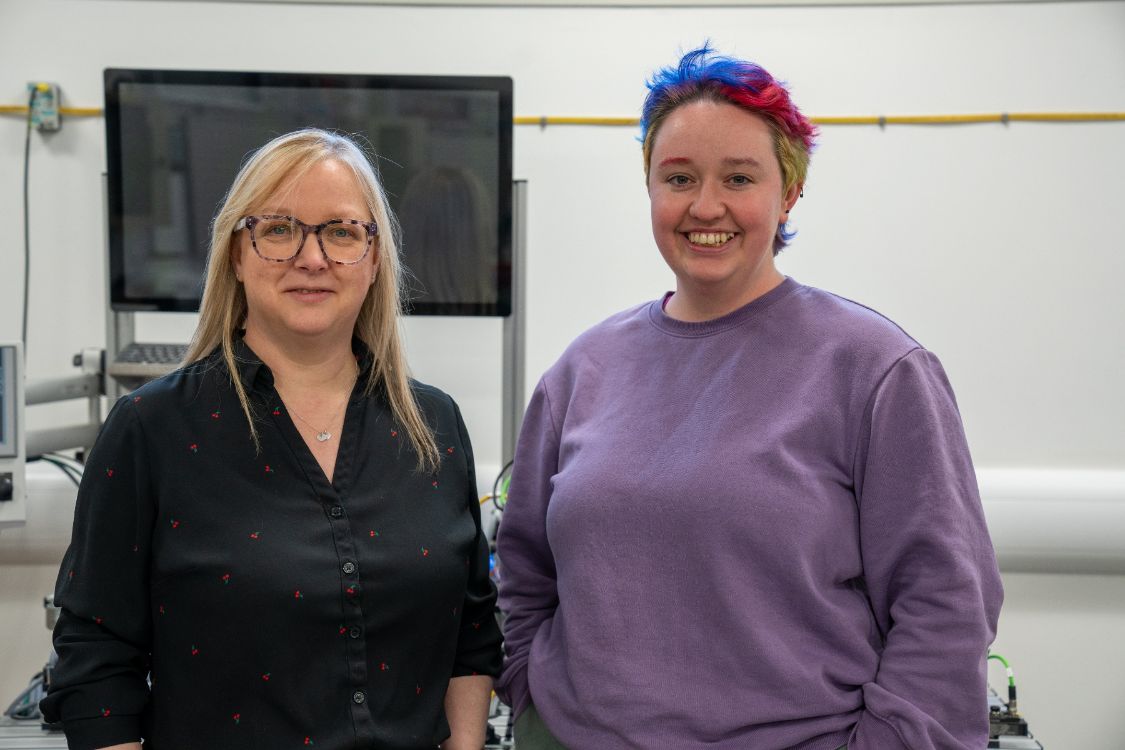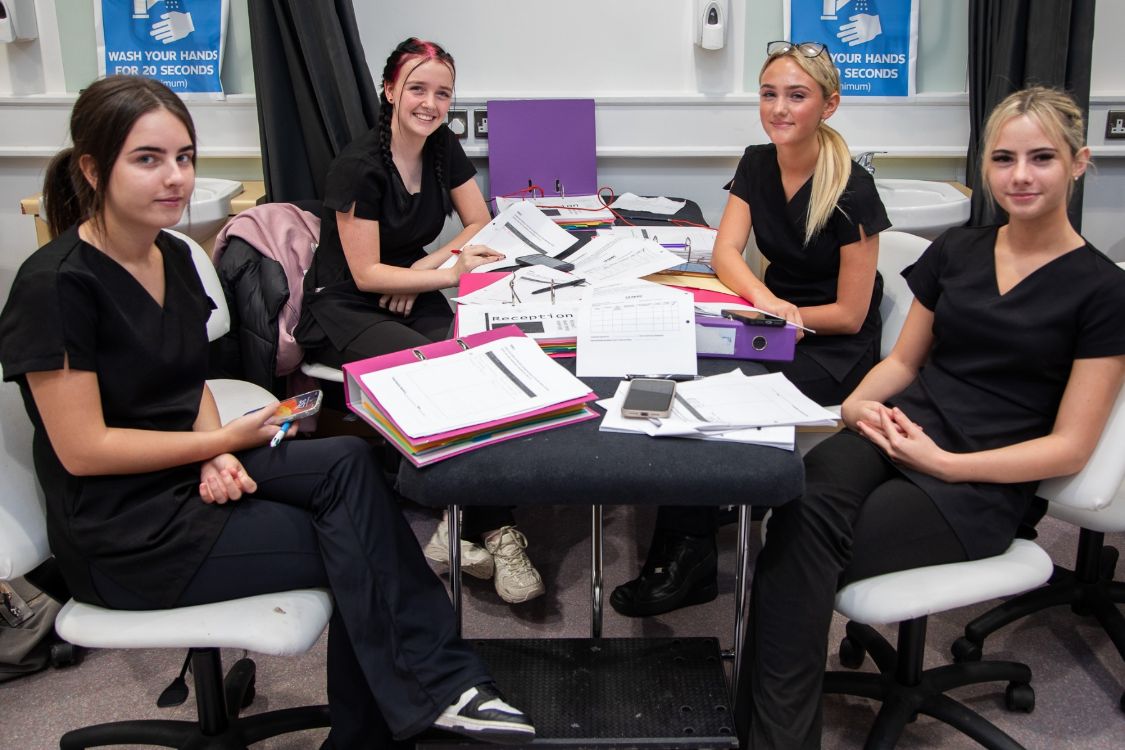Ulster University Foundation Degree in Integrative Counselling Practice
Please note that the closing date and time for the 24/25 Ulster University Foundation Degree in Integrative Counselling Practice (Y10941) has now passed and any new applications will not be considered. This professional programme in counselling, has been designed in consultation with industry partners, professional and academic bodies. The course is offered part-time over 3 years of study. It is awarded and validated by Ulster University and is accredited by the British Association of Counselling and Psychotherapy (BACP) and successful completion of the full award confers fitness to practice counselling. Please note, all applications must be received by Friday 31st May 2024. Late applications will not be considered.
Alternative Years
You are viewing the 2024/25 version of this course, it is also available in the following years:
View 2025/26 CourseThis programme is currently under review with Ulster University and as a result some content may be subject to change.
The course aims to develop students with the required attributes, skills and competencies to work effectively and ethically with adults who wish to avail of professional counselling. The course is structured around 11 taught modules. These are delivered via a blended approach to teaching and learning which involves opportunities for face-to-face lectures, student led seminars, group work, counselling practice with peers and online teaching. All modules are compulsory and represent 120 credits of learning at L4 and 120 credits of learning at L5. Successful completion of 240 credits of study, including the successful completion of the clinical practice components, result in the award of Foundation Degree in Integrative Counselling Practice.
If you are interested in applying, please utilise the online app via the website - www.serc.ac.uk - we will be able to obtain your details and email you a supplementary application form to be considered. Applicants will be invited for a pre-entry advice and guidance session. Successful outcome of an interview process is a pre-requisite for entry to the course.
In the event of the course being oversubscribed, enhanced entry criteria may be applied e.g., prior completion of a counselling skills qualification and / or relevant experience in a helping capacity.
All applicants must satisfy Enhanced Disclosure from Access NI which will incur a fee of approximately £33. If you require further information on this course please contact (Course Directors) Angelika Schulz at aschulz@serc.ac.uk or Andrea Woodrow at awoodrow@serc.ac.uk
Please note that course fees, made up of tuition fees and registration fees, are payable in each year of the programme.
All applicants must satisfy Enhanced Disclosure from Access NI which will incur a fee of approximately £33. If you require further information on this course please contact (Course Directors) Angelika Schulz, aschulz@serc.ac.uk. or Andrea Woodrow @ awoodrow@serc.ac.uk
Students must be 18 years of age or over. As places are limited, early application is required.
All applicants must meet the general entrance requirements and the standard offer for this course is 48 UCAS points as a minimum.
The requirements may be met in the following ways:
- Provide evidence of competence in written and spoken English (GCSE English Language Grades A-C/4-9 or equivalent. Essential Skills L2 Communication is acceptable) and Maths (grades A-C/4-9 or equivalent. Essential Skills L2 Use of Number is acceptable). * GCSE English Language (Grades A-C/4-9 or acceptable equivalent) and maths (Grades A-C/4-9 or acceptable equivalent) may be used as part of the GCSE requirement.1. Provide evidence of passes in five subjects, two of which must be at A-Level (Grades A-E) and three at GCSE level* (Grades A-C/4-9); or
- Provide evidence of passes in four subjects, three of which must be at A-Level (Grades A-E) and one at GCSE level* (Grades A- C/4-9); or
- Provide evidence of an approved qualification at an equivalent level such as a BTEC Level 3 Extended Diploma or Access to Higher Education qualification or equivalent**; or
- Provide evidence, for a process of formal accreditation of learning you have gained through work or other experience (APEL).
** For information on common alternative Level 3 qualifications, please refer to the Ulster University Entrance Requirements and Equivalence of Qualifications table available at https://www.ulster.ac.uk/study/entrance-requirements.
Whilst applicants who do not possess the above qualifications may gain entry to the course through the Accreditation of Prior Learning route (APEL), please note that certificated evidence of English and Maths subjects are required and APEL for these subjects is only considered in exceptional cases. Completion of the Level 4 Ulster University Certificate in Counselling Studies course, or an equivalent substantial counselling qualification, is recommended and desirable. Note: It is the responsibility of the applicant to check each University’s admission and progression requirements and the impact of using student finance before enrolling on a course at the College. Note: vocational qualifications from some awarding bodies are not accepted by the university.
Please note, all applications must be received by 31st May 2024. Late applications will not be considered.
Each module within the programme is assessed individually. Assessment is by a variety of coursework methods. The methods used reflect the learning outcomes of the module and enhance the strategies used in teaching and learning. Assessment allows for the measurement of depth and breadth of knowledge and also for the opportunity to promote active learning on behalf of the student.
Assessments activities include:
- Personal Learning Records
- Video-taped sessions
- Personal Case Study
- Case Studies
- Client Case Studies
- Vivas, Seminar Presentations
- Evaluation of Current Counselling research
Assessment activities aim to develop, in each student, the intellectual and personal qualities that can be used in counselling work. These include the ability to:
- Develop self-awareness and personal skills
- Think through problems, objectively and systematically
- Use current research to inform practice
- Conduct accurate client assessment
- Work through therapeutic outcomes
- Communicate in writing to a high standard
- Adhere to the BACP Ethical Framework
- Show effective oral communication
To support professional development 30 hours of Personal Therapy is required throughout the lifetime of the programme, and 100 hours of supervised practice client work, must be achieved. Constructive formative developmental feedback is provided for all assignments. Extensive comments are provided on all scripts which are summarised on a formal summative feedback sheet. Students are offered individual tutorials to discuss this further. Assessment is monitored further for reliability of marking through cross marking and moderation between staff, within the individual college and across colleges and by the External Examiner. Assessment Rules- Pass mark for each assessment, module and course: 40%
The design of the FdSc in Integrative Counselling Practice is in line with those set out by the two main professional bodies in the area: The British Association for Counselling and Psychotherapy (BACP) and the Irish Association for Counselling and Psychotherapy (IACP) and qualifies students to be counselling practitioners.
The programme offers two exit points depending on student need/professional goal:
- FdSc in Integrative Counselling Practice: 3 years (full qualification)
- Cert HE in Counselling: 2 years (lower award). This is an alternative lower award and non-practice route for those seeking a Certificate of Higher Education in Counselling qualification (2 years), with the emphasis on theoretical studies and exiting after 2 years.
.
Students who have successfully completed the FdSc in Integrative Counselling Practice (must include the 2 supervised practice modules), which is accredited by NCS, and be eligible to be named on the Professional Standards Register as a registered Counsellor. This course provides students with extensive opportunities for further study at a higher level e.g. Ulster University top up degree: BSc (Hons) Professional Development in Counselling, a level 6 programme and then to postgraduate at level 7
Course fees are detailed on the college website and include examination fees and registration with Ulster University. Additional costs will be incurred including:
- Personal therapy (approximately £40 per hour) for a minimum of twenty sessions
- Clinical Supervision (typically £35 - £40 per hour - (student rates may be available) ratios are 1:5 in the first 30 hours and 1:8 in the remaining 120 hours approximately)
- BACP Student membership
- NCS Student membership
- Professional Indemnity Insurance
- Access NI
Please note, course fees are payable on each year of study.
Alternative Years
You are viewing the 2024/25 version of this course, it is also available in the following years:
View 2025/26 CourseEnquiries Information
For more information or help with this course send us an enquiry and a member of our team will get back in touch.
Available Sessions
Sorry you cannot currently apply online for this course.
For more information or help with this course please complete an enquiry form.
Alternative Years
You are viewing the 2024/25 version of this course, it is also available in the following years:
View 2025/26 CourseCustomer Enquiries
Need more information or have a question about this course? Send us a message below and we will get in touch.
Start New EnquiryTerms & Conditions
Students will be required to comply with SERC's Terms & Conditions of study.
We strive to ensure the description of courses on SERC's website and in publications is accurate. However, for various reasons there may be occasions when the College may need to change arrangements or be unable to deliver classes due to circumstances such as reduced funding. If there are insufficient numbers applying for a course it may not be viable to deliver the class.
Courses are continually reviewed to take advantage of new teaching approaches and developments in research, industry and the professions. Please be aware that modules may change for your year of entry. The exact modules available and their order may vary depending on course updates, staff availability, timetabling and student demand. Please contact the course team for the most up to date module list.

Higher Education
If you have just completed your A-Levels, Higher Education is most likely the option for you. HE usually covers HNC, HND & Foundation Degree level of courses including our Higher Level Apprenticeships.
Explore Higher EducationLatest Events
Stay connected to SERC: Your guide to upcoming college events!




